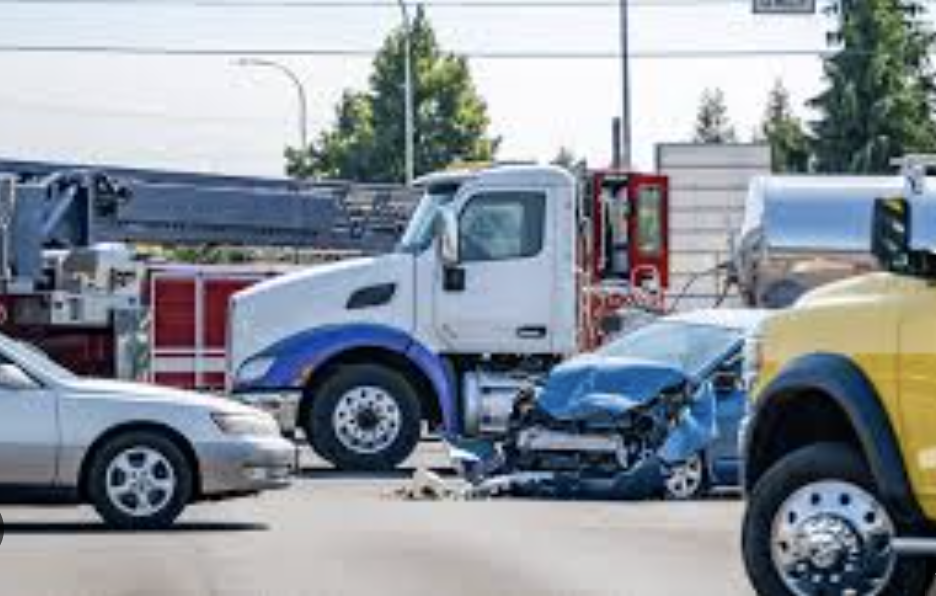Truck crashes can change lives in an instant.
Because of their size and weight, commercial trucks cause catastrophic injuries when they collide with cars, motorcycles, or pedestrians.
But truck accident cases in Virginia aren’t just “big car accidents.” They involve complex federal regulations, aggressive insurance carriers, and rapid-response teams hired by trucking companies to protect themselves — not you.
If you’ve been injured in a truck crash, you need to act quickly to preserve evidence, protect your rights, and avoid costly mistakes.
A practical guide from Cardon Law. This is general information, not legal advice. If you’ve been injured in a commercial truck or tractor-trailer accident, consult an experienced Virginia truck accident lawyer.
Truck Accident Evidence Checklist — What to Do in the First 24 Hours
| ✅ Action Step | 📍 Purpose / Why It Matters |
|---|---|
| Call 911 immediately | Ensures a police crash report under § 46.2-373, documents injuries and witnesses. |
| Photograph vehicles and scene | Captures skid marks, debris, truck logos, and DOT numbers before cleanup. |
| Get driver and company info | Name, CDL number, trucking company, and USDOT/MC number. |
| Identify witnesses | Write down names and phone numbers before they leave. |
| Seek emergency medical care | Protects your health and creates a treatment record under § 8.01-243(A). |
| Do not talk to the trucking company or its insurer | Their goal is to limit liability — refer all calls to your lawyer. |
| Contact an attorney immediately | Your lawyer can send a spoliation letter demanding preservation of black box data and driver logs. |
1) Why Truck Accidents Are Different From Car Accidents
Truck crashes fall under both Virginia law and federal trucking regulations, making them far more complex to investigate and litigate.
a) Federal Safety Regulations
Commercial trucking is governed by the Federal Motor Carrier Safety Administration (FMCSA .
Rules cover:
- Hours-of-service limits,
- Vehicle maintenance and inspection logs,
- Electronic logging devices (ELDs),
- Driver qualification and alcohol/drug testing.
Violations can establish negligence per se under Virginia law.
b) Corporate Liability
Often, multiple parties share responsibility:
- The truck driver,
- The trucking company (for negligent hiring or supervision),
- A freight broker or shipper,
- A maintenance contractor.
Under Virginia Code § 8.01-25, an employer can be held vicariously liable for its driver’s negligence.
c) Greater Damages
Truck collisions often result in life-altering injuries, requiring long-term care, loss-of-earning-capacity evaluations, and expert testimony to establish full value.
2) Preserving Evidence After a Truck Crash
Trucking companies send investigators to the scene within hours. Their goal? Protect the company, not you.
Your attorney can send a spoliation letter requiring the trucking company to preserve:
- Black box / ECM data (speed, braking, hours-of-service),
- Driver logs,
- Maintenance and inspection records,
- In-cab and dash-cam video, and
- Dispatch and GPS data.
Failure to preserve evidence may lead to sanctions under Virginia discovery rules and federal spoliation law.
3) Reporting and Investigation Requirements
In Virginia, all injury crashes must be reported under § 46.2-894.
The responding officer’s report becomes crucial evidence. Officers may inspect the truck’s mechanical condition, note contributing factors, and collect witness statements.
Always request a copy of your FR300 crash report as soon as it’s filed with DMV.
4) Insurance Issues in Truck Accidents
Commercial carriers maintain high-limit insurance policies — often $750,000 to $5 million.
Key Insurance Complications
- Multiple insurers: driver, carrier, and shipper may each have coverage.
- Recorded statements: adjusters seek admissions to weaken your case.
- Fast settlements: they offer quick money before medical care is complete.
Never speak with their adjusters. Let your lawyer handle all communications.
5) Medical Treatment After a Truck Crash
Truck-related injuries are often severe: spinal trauma, brain injuries, and fractures are common.
Seek treatment immediately — even if you feel “okay.” Adrenaline can mask injuries.
Keep all:
- Emergency and hospital records,
- Doctor and therapy notes,
- Prescriptions, and
- Lost-wage verification.
These records document causation and damages for your claim.
6) Car Repair and Total-Loss Claims
If your vehicle was damaged:
- Get multiple repair estimates,
- Take photos before and after repairs, and
- Save all correspondence.
Under Virginia Code § 46.2-1088.6, you can choose your own repair shop — you’re not required to use one chosen by the trucking company’s insurer.
If the vehicle is totaled, you’re entitled to fair market value — not just the payoff amount on your loan.
7) Common Causes of Truck Accidents
- Driver fatigue / hours-of-service violations
- Distracted or handheld phone use
- Faulty brakes or poor maintenance
- Speeding or following too closely
- Overloaded cargo or unsecured loads
- Intoxicated driving
Identifying these violations helps establish negligence and liability in your civil claim.
8) Example: The Trucking Company’s Early Calls
Within a day or two of the crash, you might receive a call from a “claims adjuster” or “company safety officer.”
They’ll sound helpful — even apologetic — but they’re gathering statements to limit their liability.
Always respond:
“Thank you for calling. I’ve retained legal counsel. Please contact my attorney directly.”
Then hang up and document the call.
FAQ
Why are truck accidents more complex than car accidents?
Because they involve federal regulations, corporate defendants, and high-value insurance policies. Each has its own legal obligations and potential liability.
Who can I sue after a truck crash?
The driver, the trucking company, the freight shipper, a maintenance contractor, or all of the above — depending on fault.
How soon should I contact a lawyer?
Immediately. Trucking companies can legally destroy driver logs and black-box data after short retention periods unless your attorney intervenes.
What insurance limits apply?
Federal minimums start at $750,000, but hazardous-material carriers can have limits up to $5 million.
What if I’m contacted by their insurer?
Never give a statement. Politely refer them to your attorney.
Hurt in a Truck Accident in Virginia? Act Fast to Protect Your Case.
Truck accident claims move quickly — and so do trucking companies trying to minimize them.
The sooner you have legal counsel, the stronger your case will be.
Cardon Law represents truck accident victims throughout Virginia Beach, Norfolk, and Hampton Roads.
We know how to preserve critical evidence, expose regulatory violations, and fight for maximum compensation.
📞 Free Consultation: (757) 306-9060
📱 24/7 Direct to David A. Cardon: (757) 620-3283





